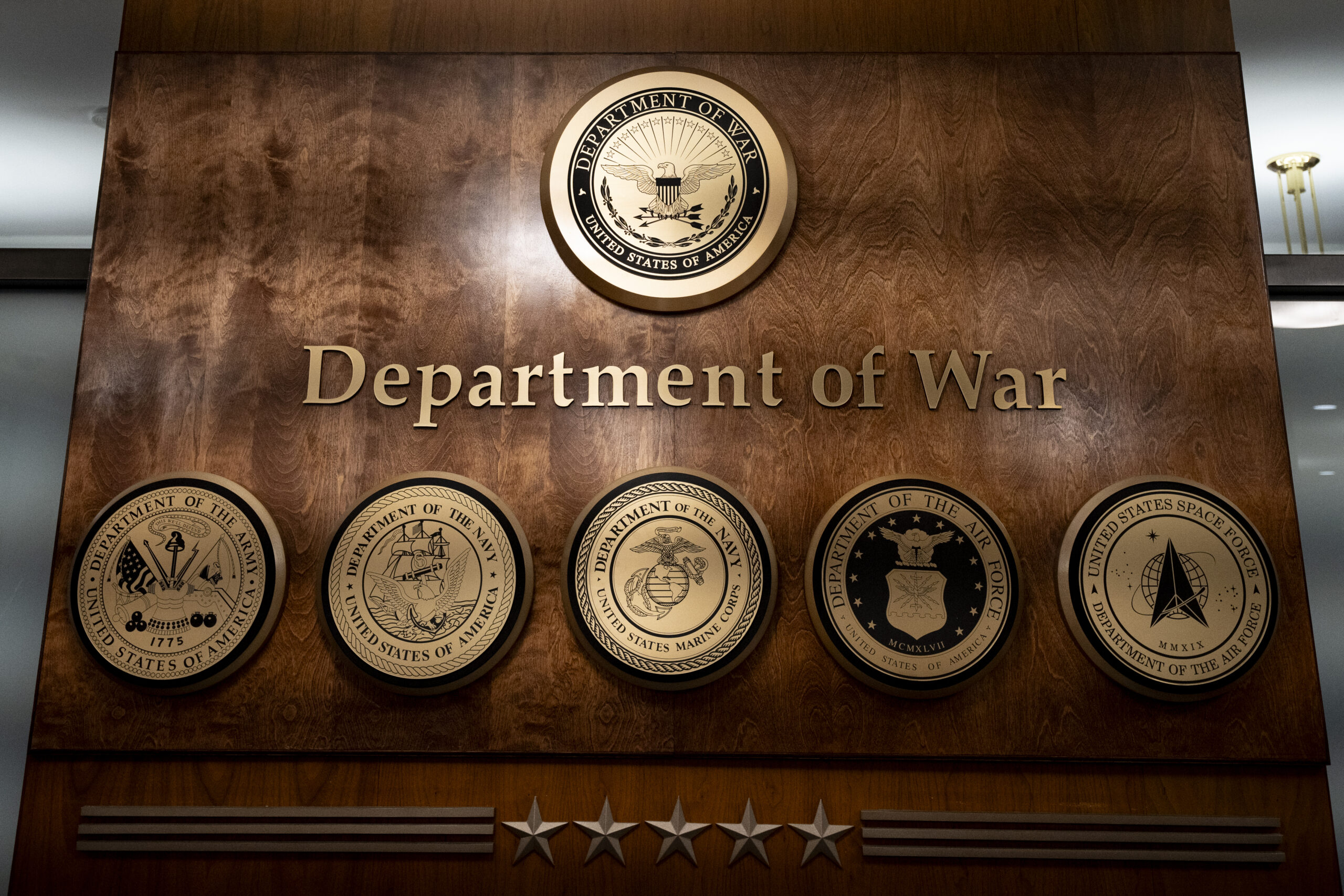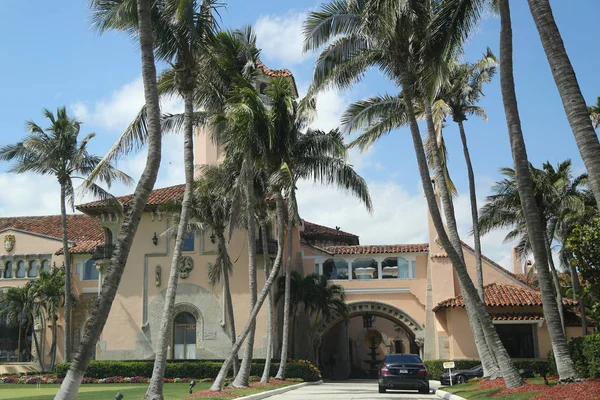Renaming the ‘Defense Department’ Is a Good First Step
The Pentagon has little to do with America’s defense.

President Donald Trump often functions like a broken clock. Twice a day he gets an issue right. In a recent case, he struck true gold with his decision to rename the Department of Defense the Department of War, the original name for what we now often simply call the Pentagon, the massive building that houses much of the military’s vast bureaucracy.
America’s war-making cabinet post was originally created as the Department of War in 1789 and operated with that name until 1949. The latter change was clumsy propaganda. Explained historian Richard H. Kohn: “It was to communicate to America’s adversaries and the rest of the world that America was not about making war but defending the United States.” During the Cold War there was at least a pretense that the armed forces were deployed for America’s “defense,” though the country’s military interventions grew increasingly dubious, culminating in the Vietnam debacle.
However, as is his wont, Trump’s decision had little to do with reality and everything to do with illusion. He called “Department of Defense” politically correct and opined that the new name “just sounded better.” He got the politically correct charge right, but otherwise his rationale, expressed in his executive order, was almost entirely wrong. He contended: “The name ‘Department of War,’ more than the current ‘Department of Defense,’ ensures peace through strength, as it demonstrates our ability and willingness to fight and win wars on behalf of our Nation at a moment’s notice, not just to defend. This name sharpens the Department’s focus on our own national interest and our adversaries’ focus on our willingness and availability to wage war to secure what is ours.”
In fact, the problem with the previous name is simply that it had proved to be increasingly false, essentially disguising activities almost completely disconnected from protecting America and Americans. Even when the military’s activities can be characterized as “defense,” it usually involves a response to threats created by earlier misbegotten, counterproductive, and aggressive interventions that often are not only practically foolish but morally monstrous. The true “national interest” that the president spoke of would be to avoid such conflicts entirely.
In America’s early years, “Department of War” was an accurate description. Although the War of 1812 began as defense against British naval depredations, Americans avidly pursued the conflict in a frankly imperialistic effort to conquer London’s Canadian possessions. The U.S. barely escaped with a draw after its invasion attempts were disastrously repulsed.
President James K. Polk triggered the Mexican–American War by stationing U.S. military forces in disputed territory to back a highly dubious claim made by Texans seceding from Mexico. In truth, his ambitions were much greater, to seize the vast territories that today make up much of the western United States. In victory Washington annexed half of Mexico, and some imperialists wanted to grab it all. Declared the New York Herald: “Like the Sabine virgins, she will soon learn to love her ravisher.”
The War Department’s biggest battle was against its own people. Known as the Civil War, it wasn’t actually one, since the southern states fought to secede, not to control the entire union. Some 750,000 Americans died, equivalent to about eight million or so if a similar proportion of the population died today. Slavery was a terrible crime, but few joined Washington’s military to liberate those in bondage. While that would have offered a moral cause, forcing people at gunpoint to remain in the union—and killing them if they resisted—was not. The War Department saved Washington’s authority, not the country, which was ravaged by the conflict.
The Spanish–American War was openly imperialistic. The U.S. had conquered North America’s heartland and west, suppressing native Americans with great force, yet pretended moral outrage at Spain’s brutal war against Cuban insurgents. While Washington could at least plausibly, though not convincingly, claim its intervention in Cuba to be motivated by high-minded humanitarianism, the conquest of the Philippines and ruthless suppression of the preexisting Filipino independence movement was the worst form of callous and cruel imperialism. The U.S. behaved with greater barbarity than the Spanish, causing the deaths of hundreds of thousands of Filipino civilians. Even Republican politicians were appalled by the military’s ostentatious criminality.
For decades, the U.S. was openly imperialistic in Latin America. The Monroe Doctrine did not affirm neighborly independence. Rather, it ordered the Europeans to stay out, allowing Washington to replace them as de facto colonial masters. President Woodrow Wilson, ever prone to misuse his authority and the U.S. military, was among the worst abusers. He ordered a brief war and the occupation of Veracruz to force Mexico to, ludicrously, salute the American flag after a convoluted dispute involving U.S. merchant sailors. So much for his grand and much-inflated reputation as a liberal statesman.
Even more disconnected from America’s defense was World War I, with U.S. involvement initiated by the same obnoxiously pompous, vainglorious, and sanctimonious Wilson. He ran for reelection, citing his refusal to enter the idiotic imperial slugfest—in which no combatant looks good in retrospect—that prodigiously consumed European lives. He then abandoned those he was supposed to serve and took the country into the war on the preposterous argument that Americans were entitled to immunity when booking passage on British liners, even if armed, designated as reserve cruisers, and carrying munitions through a war zone. For this, along with a contemptibly haughty desire to reorder the globe, he callously sacrificed 100,000 American lives and ruthlessly suppressed civil liberties. Then he bungled the peace, putting his name on the Versailles Treaty, which prepared the ground for another, far worse war a generation later. America’s “defense” was the last issue on his mind.
After fighting all these dubious conflicts, only in World War II did the Department of War finally act to protect America, and even then, only after the Roosevelt administration recklessly provoked a Japanese strike by cutting off Tokyo’s supplies of steel and oil and waged an undeclared, unprovoked naval war against Germany. At least in this case the adversaries were truly evil and America’s victory left the world in a better, though badly divided, state.
Four years after the end of that struggle, Congress changed the bureaucracy’s name to the Department of Defense. Since then, most of America’s wars also had nothing to do with defense. In the Korean War the U.S. obviously was not threatened. Until then no one considered the Korean peninsula to be a strategic American interest. Even Gen. Douglas MacArthur had previously dismissed the security importance of what had been a Japanese colony. The best argument for U.S. intervention was that Washington helped set up the conflict—dividing the peninsula, creating a semi-puppet regime, accepting rule by an aggressive nationalist—but failed to then prepare its Korean state for the war to come.
Vietnam, the nation’s costliest post-World War II conflict, was a bizarre attempt to salvage what had been France’s Southeast Asian empire. The extended imbroglio offered no serious defense rationale. Most of the potpourri of later, smaller interventions—Grenada, Panama, Somalia, Haiti—appeared to reflect Washington’s continuing imperial pretensions, especially in the post-Cold War era. The initial assault on Afghanistan’s Taliban regime could be justified as a response to Al Qaeda’s attack on 9/11, but 20 years of conflict and the dishonest and disastrous invasion of Iraq could not be. Nor could subsequent support for Saudi and Israeli aggression against their neighbors, or the Trump administration’s attack on Iran and threats against Venezuela. In all of these, the Pentagon acted as the Department of War, not the Department of Defense.
Still, the president’s task is not complete. First is the admittedly superficial name issue. He can direct his own officials to use DoW rather than DoD. However, despite his exalted opinion of presidential authority, he cannot overrule Congress and formally change the Pentagon’s official name. For that, he needs to win Capitol Hill’s approval.
Second is the substantive issue of going to war. The president presents himself as something of a peacenik, but he has shown no reluctance to use the U.S. military, usually for purposes distressingly far from defense or otherwise putting America first. Even as he calls the Pentagon the Department of War, he should reject war except in America’s defense. War is sometimes necessary, but virtually never in the case of the U.S., which is the most secure great power ever. It is time to make war rarer still as a policy tool of Washington.
Changing the Pentagon’s formal name to the Department of War would be a great step forward in truth in advertising. Better still would be to stop going to war absent the most compelling justification. If Donald Trump makes that his legacy he would be a worthy recipient of the Nobel Peace Prize.
The post Renaming the ‘Defense Department’ Is a Good First Step appeared first on The American Conservative.

